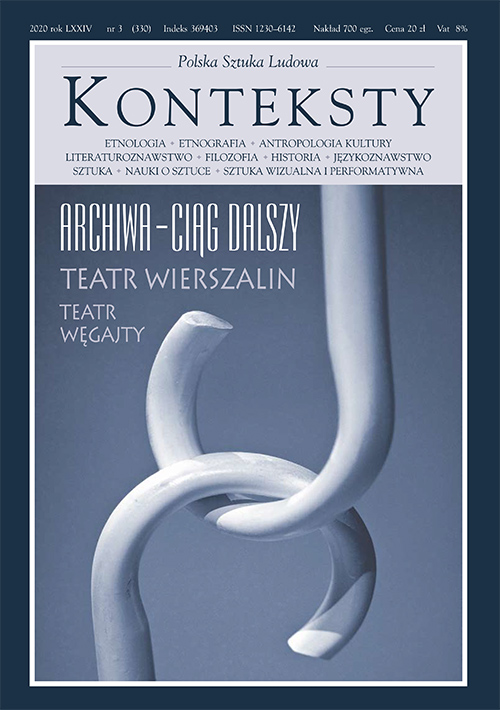Spotkania w sztuce. Rainer Maria Rilke i Hugo von Hofmannsthal – dalekie pokrewieństwo myśli
Encounters in Art. Rainer Maria Rilke and Hugo von Hofmannsthal – a Distant Affiliation of Thought
Author(s): Dorota Kownacka-RogulskaSubject(s): Language and Literature Studies
Published by: Instytut Sztuki Polskiej Akademii Nauk
Keywords: Rilke;Hofmannsthal
Summary/Abstract: At first glance Rainer Maria Rilke and Hugo von Hofmannsthal reveal numerous similarities – outstanding poets and men of letters, inept reviewers of art events, both Austrians by birth, closely connected the late nineteenth-century Vienna, and almost of the same age, they embarked upon themes associated with the reception and impact of art. Both men recalled the same artists, read the same books on art, and had an almost identical circle of acquaintances. Rilke developed his skills in front of an audience and experienced better or worse moments, including those of the poignant discomfort of prematurely announced and still immature lyrics. The more indrawn Hofmannsthal, fully developed and a perfectionist from his earliest literary attempt, maintained control over each broached theme and preserved a given convention. Even Julius Meyer-Graefe envied him aptness of statements about art phenomena. Both men of letters were continuators of a turnabout towards the unsaid. Both in their works tackled the crisis of the word, that characteristic fin de siècle re-evaluation of language. Both enhanced their workshop and literary vocabulary with observations of processes taking place in art. Their return to the word, however, disclosed two different paths of artistic development. Hofmannsthal turned towards social art by assiduously working for the sake of upholding the cultural legacy of his continent. Rilke turned towards non-engagée art by promoting l’art pour l’art, which opened a path towards modernity, with which he was unconcerned and which guaranteed him due memory. Hofmannsthal resigned from personal glory, being absorbed by cultivating national and communal identity so as to ensure a future continuum of historical empowerment. Apparently, the future moulded by Hofmannsthal did not appreciate the attraction of the stability and endurance promoted by the writer, and thrust into the whirlpool of a successive war rendered his universal strivings no longer current. There is the ever topical Rilke, more familiar to the Polish reader than Hofmannsthal, translated only in fragments and immersed in the history and culture of his people, both representing two, sometimes concurrent but basically different stands vis-à-vis existing reality. Regardless, or perhaps precisely for this reason, it is worth taking another look at those two creative stances.
Journal: Konteksty
- Issue Year: 330/2020
- Issue No: 3
- Page Range: 11-17
- Page Count: 7
- Language: Polish
- Content File-PDF

